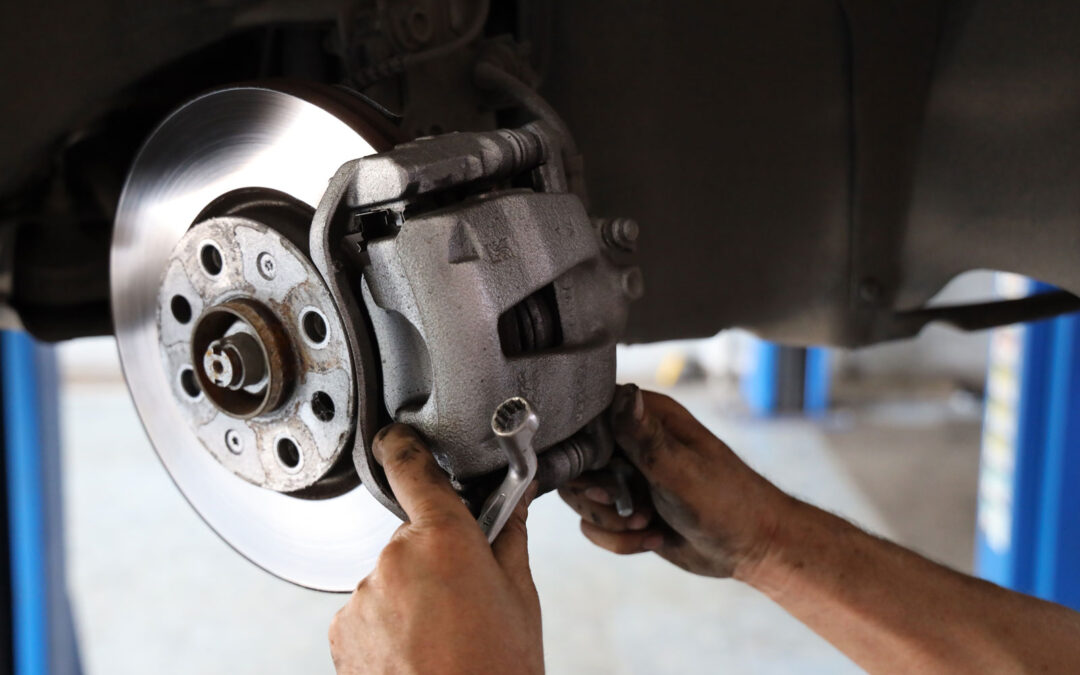Brake pads are one of the most critical components of your vehicle’s braking system. They create the friction needed to slow down or stop your car when you press the brake pedal. Over time, brake pads wear down and need replacement to ensure your vehicle’s safety and performance. Knowing when to replace them is crucial for avoiding costly repairs and, most importantly, for staying safe on the road.
Here’s everything you need to know about when and why to replace your car’s brake pads.
How Do Brake Pads Work?
Brake pads are designed to press against the brake rotors, creating friction that slows the rotation of your wheels and brings your vehicle to a stop. This friction gradually wears down the brake pad material, which is why routine inspection and replacement are necessary.
Signs It’s Time to Replace Your Brake Pads
Paying attention to the following signs can help you determine when your brake pads need replacement:
Squeaking or Squealing Sounds
Most brake pads are equipped with a wear indicator that emits a high-pitched squealing noise when the pads are worn down. If you hear this noise consistently, it’s time to get your brakes inspected.
Grinding or Metal-on-Metal Sounds
If you hear a grinding noise, it usually means the brake pads are completely worn out, and the metal components are rubbing against the rotor. This can cause significant damage and requires immediate attention.
Reduced Brake Performance
If your vehicle takes longer to stop or feels less responsive when braking, worn-out brake pads could be the culprit.
Dashboard Warning Light
Many modern vehicles have a brake warning light on the dashboard that alerts you when it’s time to inspect or replace the brake pads.
Visual Inspection
If you can see your brake pads through the wheels, check their thickness. If they are less than ¼ inch thick, it’s time for a replacement.
Vibration When Braking
A vibrating brake pedal could indicate uneven brake pad wear or warped rotors, both of which require professional attention.
Why Replace Your Brake Pads?
Ensure Safety on the Road
Worn-out brake pads can significantly reduce your vehicle’s braking ability, increasing the risk of accidents.
Prevent Costly Repairs
Neglecting brake pad replacement can damage other components, such as rotors and calipers, leading to more expensive repairs.
Maintain Performance
Replacing brake pads on time ensures your vehicle stops effectively, maintaining its performance and reliability.
How Often Should Brake Pads Be Replaced?
The lifespan of brake pads depends on several factors, including your driving habits, the type of brake pads, and the type of vehicle you drive. As a general guideline:
- Semi-Metallic Brake Pads: Typically last 30,000 to 50,000 miles.
- Ceramic Brake Pads: May last up to 70,000 miles or more.
- Organic Brake Pads: Tend to wear out faster, usually around 20,000 to 40,000 miles.
Always consult your owner’s manual for specific recommendations and schedule routine inspections to ensure your brake pads are in good condition.
Trust Harris Automotive for Expert Brake Service
At Harris Automotive, we know how important well-functioning brakes are for your safety and peace of mind. Our ASE-certified technicians specialize in brake inspections, pad replacements, and rotor resurfacing to keep your vehicle safe and performing at its best.
When you choose Harris Automotive, you’ll benefit from:
- Free Safety Inspections with every service.
- Convenient Locations in Westerville and Blacklick.
- Customer-Centric Service backed by a 3-year, 36,000-mile nationwide warranty.
Schedule Your Brake Inspection Today!
Don’t wait until you hear a grinding noise or notice reduced braking performance. Schedule a brake inspection with Harris Automotive to keep you and your passengers safe on the road. Contact our team today to set up an appointment at one of our convenient locations!
Stay safe, drive with confidence, and trust Harris Automotive for all your braking needs.






